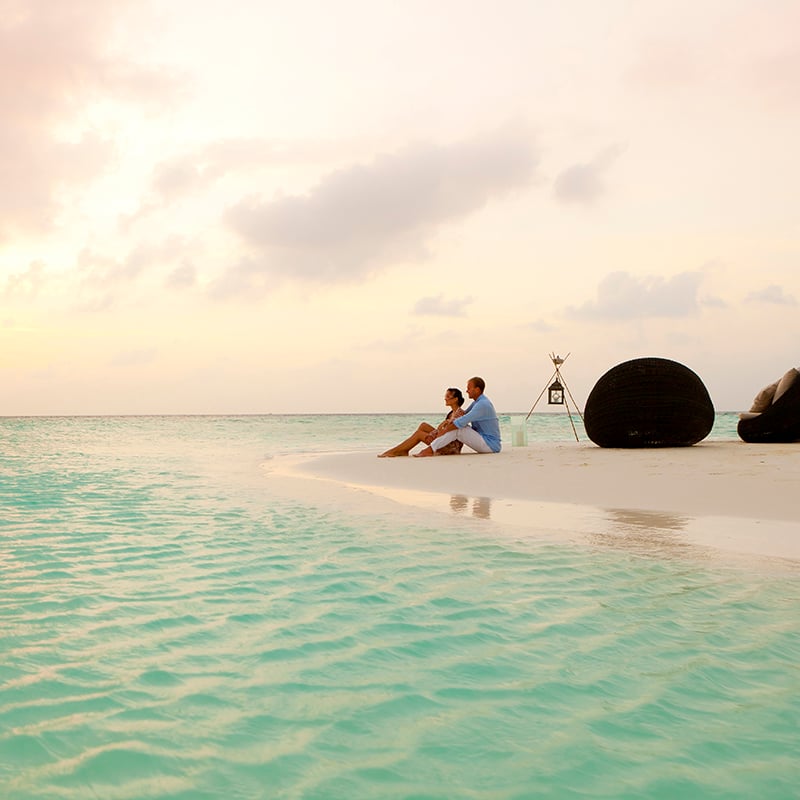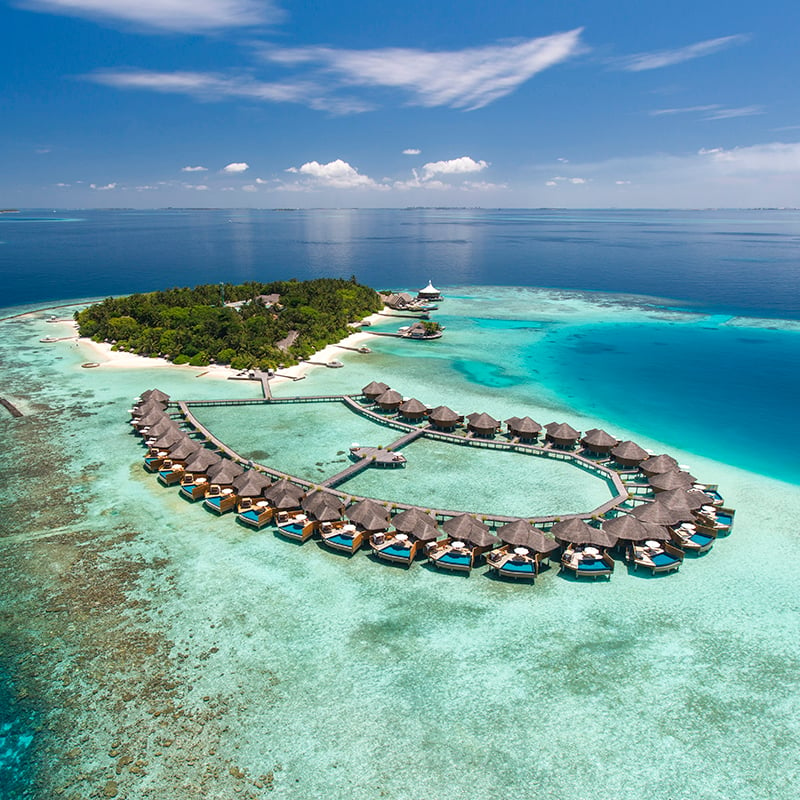Coral Reefs in the Maldives
19 February 2023 | All Blogs, Destination
The Maldives is a breathtaking archipelago of low-lying islands in the Indian Ocean. A place of sugar-soft white sand, swaying palms and azure waters. It’s no surprise that this paradise is one of the world’s top luxury travel destinations. But one of the most spellbinding treasures of this archipelago lies beneath its crystal-clear waters—its coral reefs.
The Maldives is home to some of the world’s most diverse coral reefs, which feature dozens of different species including, amongst others, staghorn coral, brain coral, plate coral and finger coral.

What are coral reefs?
Coral reefs are living ecosystems made up of thousands of species that live in harmony with one another. These vibrant underwater habitats attract many species of fish and other marine life making them a diver’s paradise. Not only do they provide a home for fish and other marine creatures, but they protect islands from water swells durings storms, and even produce oxygen through photosynthesis. The structure of a coral reef is created by thousands of small organisms called polyps.
The reef formation process
The process of reef formation begins when polyps attach themselves to rocks or other hard surfaces on the ocean floor. As they grow and reproduce, these polyps secrete calcium carbonate, which forms a protective shell, or skeleton, around them. This hard outer shell also becomes a foundation for further growth. Over time, more polyps join these shells to form complex structures called corals that can eventually form entire reefs if given enough time and space to grow.

The Maldivian reefs are part of an extensive network of coral reefs that span the Indian Ocean, stretching all the way from East Africa to Indonesia. This unique reef ecosystem is home to some of the most colourful and diverse marine life in the world. From majestic manta rays to tiny sea horses, there’s something new and exciting to discover every time you venture out into the water.
In addition to being incredibly beautiful, these vibrant ecosystems provide food and habitat for many different species – making them essential for marine biodiversity and health. Its coral reefs are home to over 2,000 species of fish and 250 species of corals, as well as a variety of other sea creatures like turtles, dolphins, sharks and manta rays.

The best spots for snorkelling are located close to shore, where coral gardens become a playground for fish and other creatures. If you’re looking for a more adventurous experience, you can head out on one of our boats to a dive site further away from shore where you can explore deeper parts of the reef system.
Our reefs are precious
In recent years, coral bleaching has become an increasingly common phenomenon due to climate change, leading to ocean warming and acidification. Baros Maldives has an onsite marine biologist who uses various techniques to support the health of our house reef, including floating lines and coral frames on which corals can grow. But while these techniques can be hugely successful, they don’t help to propagate the reef itself. That’s why we’ve launched a new programme that centres on coral restoration in the reef itself, the Coral Cube planting initiative.
As a guest you can plant concrete Coral Cubes in predetermined areas of the house reef that need the most support. Broken coral pieces that are still alive can then be attached to these structures.
These Coral Cubes are formed from reusable wooden moulds, involve no plastic elements and the corals attach directly onto the concrete itself. In other words, no harmful substances are used and no waste is left behind, making this technique wonderfully environmentally friendly.

Exploring the underwater world of the Maldives is a once-in-a-lifetime experience not soon forgotten. From vibrant corals and exotic fish, these reefs offer travellers unparalleled opportunities for adventure. Book your stay with us today to experience the magical wonder of the Maldives coral reefs or get in touch via [email protected] or dial +960 664 26 72.
 English
English РУССКИЙ
РУССКИЙ DEUTSCH
DEUTSCH 简体中文
简体中文 Spanish
Spanish





